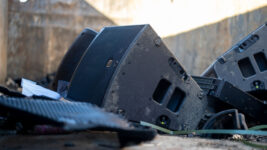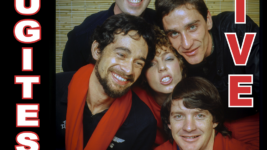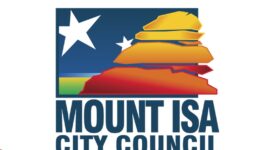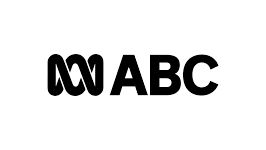DESK TAPES
7 Mar 2024
Ariel – LIVE at Martinis 1976 tape to be released on March 15th 2024
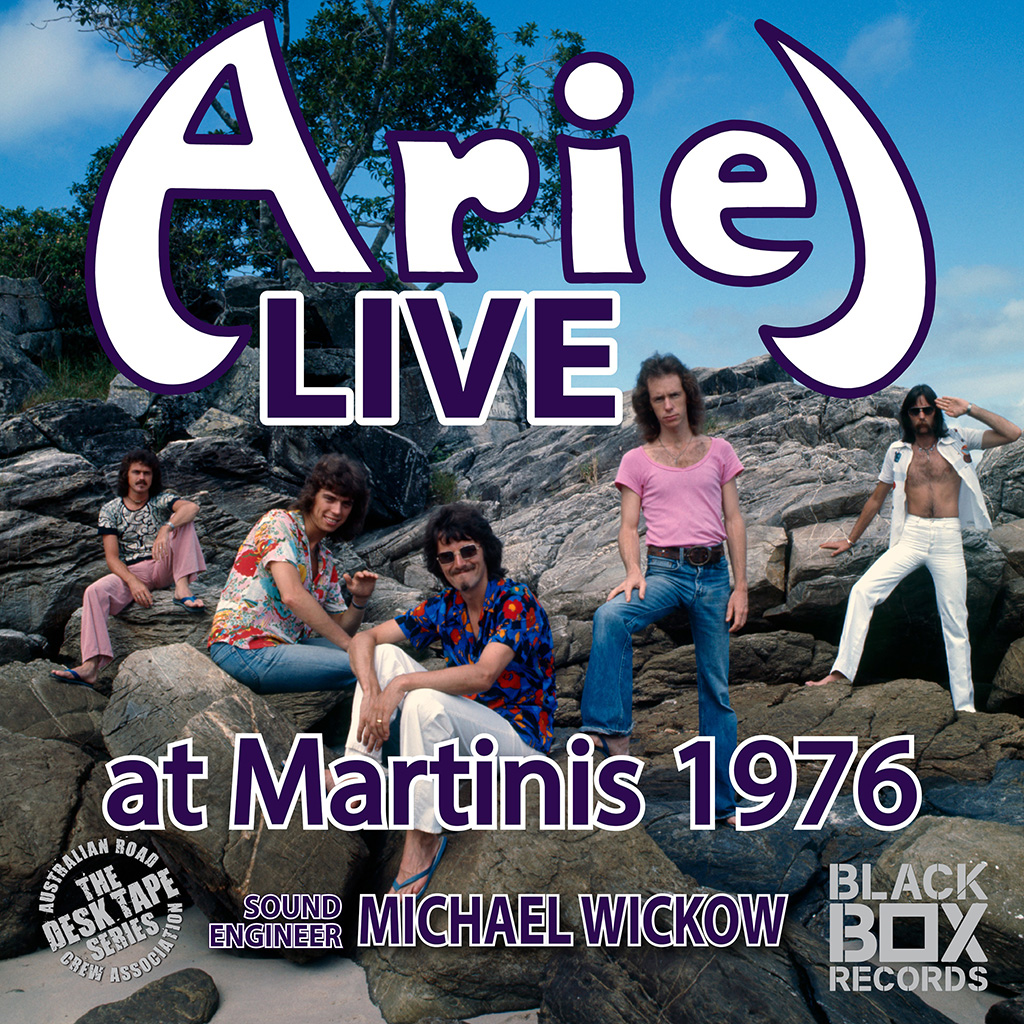
Subscribe to CX E-News
Ariel LIVE at Martinis 1976 is the 39th release of the Australian Road Crew Association’s (ARCA) Desk Tape Series.
The Series was created by ARCA to raise badly-needed finances for Support Act’s Roadies Fund to provide financial, health, counselling and well-being services for roadies and crew in crisis.
Over 40+ artists have now thrown their hats in the ring to help.
The Desk Tape Series recordings are made off the sound desk by a crew or production member – in this case their long-time sound engineer Michael Wickow – and released on ARCA’s Black Box Records through MGM Distribution and on all major streaming services.
Thanx to Greg Noakes and Michael Wickow for the photos, Nprint for the artwork, Phil Dracoulis for the mastering, and especially Ariel for their support of roadies and crew in crisis.
ARIEL Live at Martinis November 30, 1976
TRACKS
- 1 Redwing
- 2 Confessions Of A Psychopathic Cowpoke
- 3 Caught In The Middle Again
- 4 Kings Cross Crusader
- 5 Hollywood
- 6 I’ll Take You High
- 7 Hot Sweet Love – Cypherland Blues
- 8 Rock And Roll Scars
- 9 I Can Do Anything
- 10 Disco Dilemma
- 11 It’s Gonna Get Worse
- 12 I Can’t Say What I Mean
- 13 Goodnight Fiona
- 14 I’ll Not Fade Away
- 15 Red Hot Momma – Good Advice
- 16 I’ll Be Gone
BAND
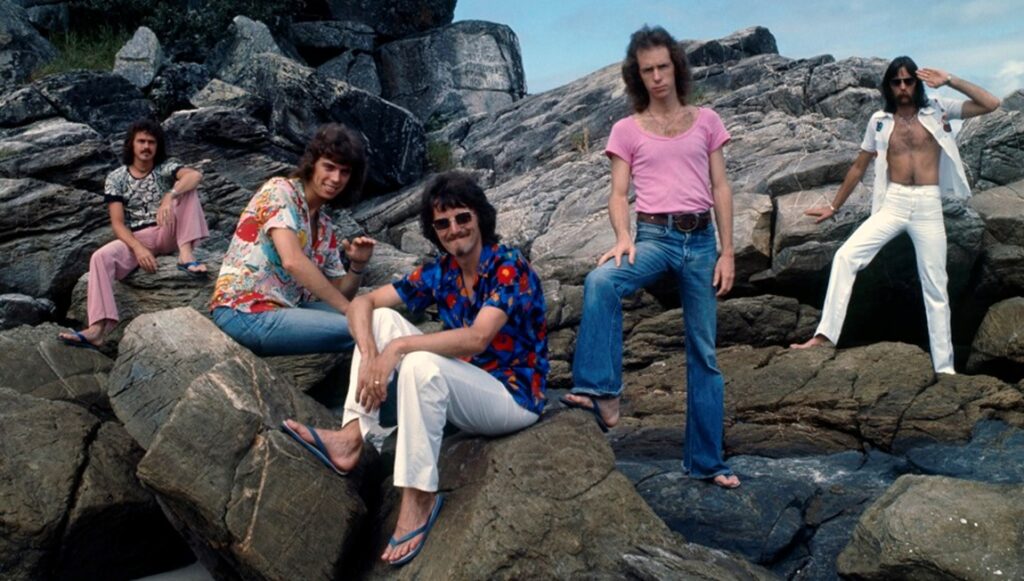
- Mike Rudd – vocals, guitar, harmonica
- Bill Putt (R.I.P) – bass, backing vocals
- Glyn Mason – guitar, vocals
- Tony Slavich − keyboards, vocals
- Iain McLennan (R.I.P) − drums, backing vocals
ROAD CREW
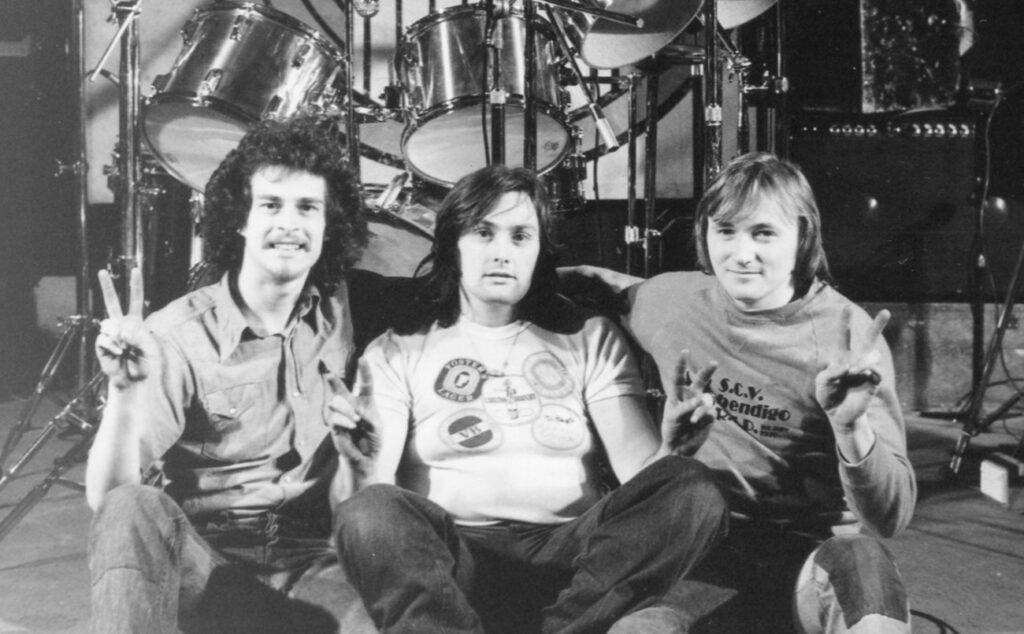
- Michael “Wrongway” Wickow – sound
- Ian “Piggy” Peel – lights
- Alan “Atlas” Nind – stage
ARIEL Live at Martinis November 30, 1976 live tape and all the ARCA Desk Tape Series recordings are available through Black Box Records – ARCA (australianroadcrew.com.au) and the following:
https://ffm.to/liveatmartinis1976 (paste into browser if it fails to work)
- Amazon
- Anghami
- Apple Music / iTunes
- Boomplay
- Black Box Records
- Deezer
- MGM
- Pandora
- Shazam
- Spotify
- TenCent
- Tidal
- TikTok
- YouTube Music
Hot Smoky Night
Martinis was a popular live music venue in the Melbourne suburb of Carlton (cnr Rathdowne & Neil Streets) which was the launching pad for names such as Ariel, Skyhooks, The Dingoes and Little River Band.
Ariel played many shows there from 1973 to 1977. The final lineup – with original members Mike Rudd and Bill Putt, and Glyn Mason, Tony Slavich and Iain McLennan – was the one that played Martinis on November 30, 1976, captured on this ARCA tape.
On this night they set a new attendance record, with more than the 400 that usually crammed in.
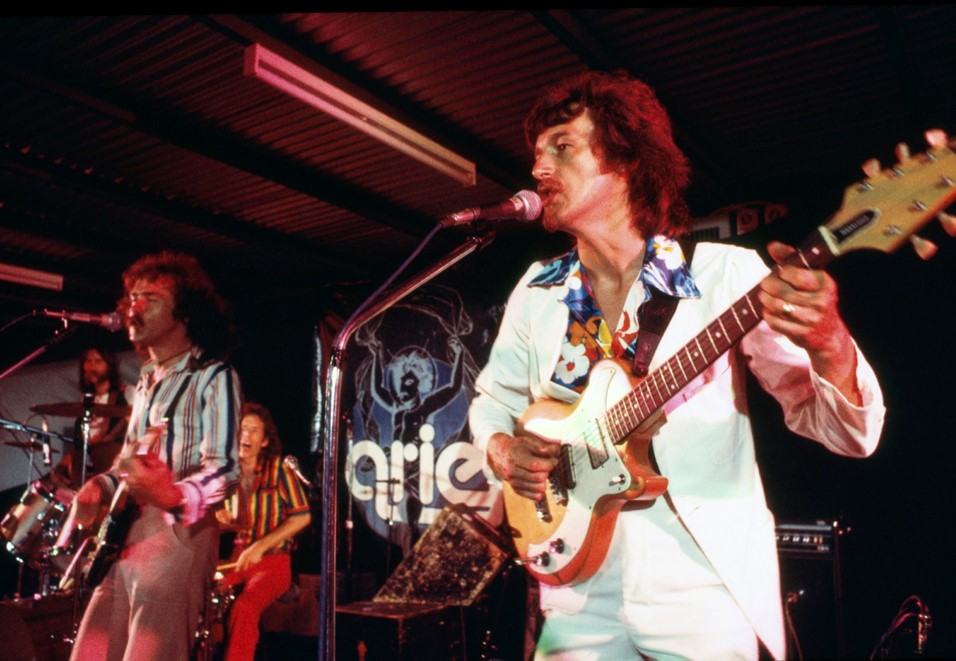
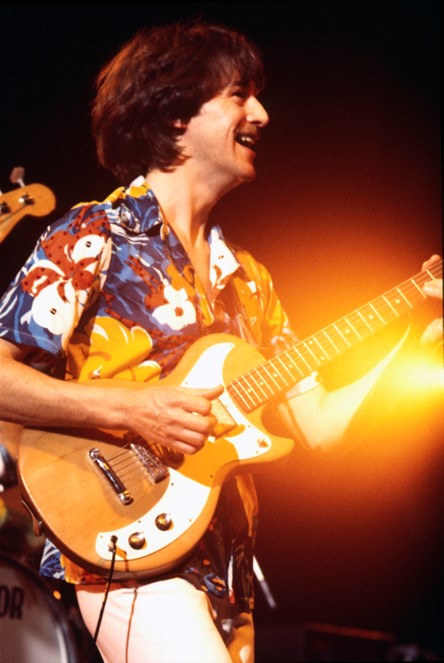
Mike Rudd (singer/guitarist): “Martinis was one of Ariel’s favourite venues and we were one of their favourite bands. It was the last day of school exams, and there were a lot more younger people in the audience than usual.
“It was very, very cramped. I don’t think the roadies could have made from front to back of the room, which was only metres.”
Michael Wickow (sound engineer): “It was incredibly hot, the instruments were going out of tune, the band were complaining about how they were sweating, and the air was thick with cigarette smoke.
“The show had such an incredible energy to it. I’d never seen a crowd so packed in a club. Ariel not only broke the attendance record, but probably also broke the law several times!
“You literally couldn’t move, you were stuck where you were. I was in the back of the room, and I couldn’t see the band unless I stood on a box. It was a low stage, probably one or two feet high.
“Ariel were a hard working band, getting up there and doing a pretty tough gig. They’d do that, five or six times a week. A real working band. Piggy (lighting) and I were working our arses off every week but we enjoyed being part of the band. Piggy did a great light show.
“I had a D400 Ford and it was full. Eventually Alan “Atlas” Nind came on board to help to do stage. Atlas could lift anything. It was the best crew.”
Wickow, then a copywriter and layout artist in a retail company, and Brian Cadd’s drummer Geoff Cox were going out with two sisters. Over a family dinner, Cox asked if he wanted to go on the road in two weeks.
“I had holidays due with my day job, so I thought, Why not? Cadd’s tour manager Billy Rowe (R.I.P) told me I had to get a truck driver’s licence. I had friends who had a warehouse and trucks, so I got that in a week.
“Within two weeks I was on the road to Tamworth for a gig, and one of the crew was rolling a joint. I was straight-as-a-die and it was an eye-opening time. I never went back to that retail job.”
He remembers the Ariel period with great fondness. “It was a great scene, there’d be bands playing on every corner, and they were all doing original songs.
“Everyone in Ariel were great players, and they were such a tight outfit. Mike Rudd is one of the best lyricists, some of his stuff was out the window, but they just blew me away. His vocals were amazing and so was his guitar style.”
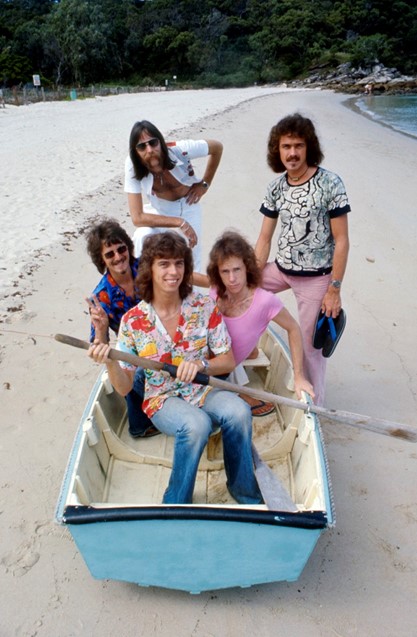
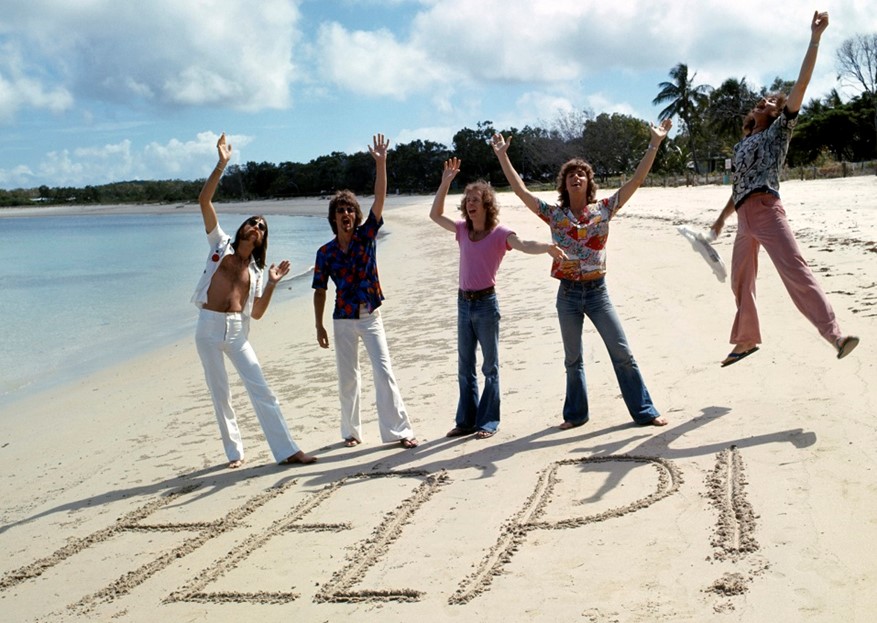
One of his best moments were when Ariel were the first band to play Great Keppel Island, off the Queensland coast, as a music destination.
“You flew 100 pieces of gear up at $1 each, transferred it to a removal van which was put on a barge, and a tractor had to tow it up the beach. It was an interesting experience.”
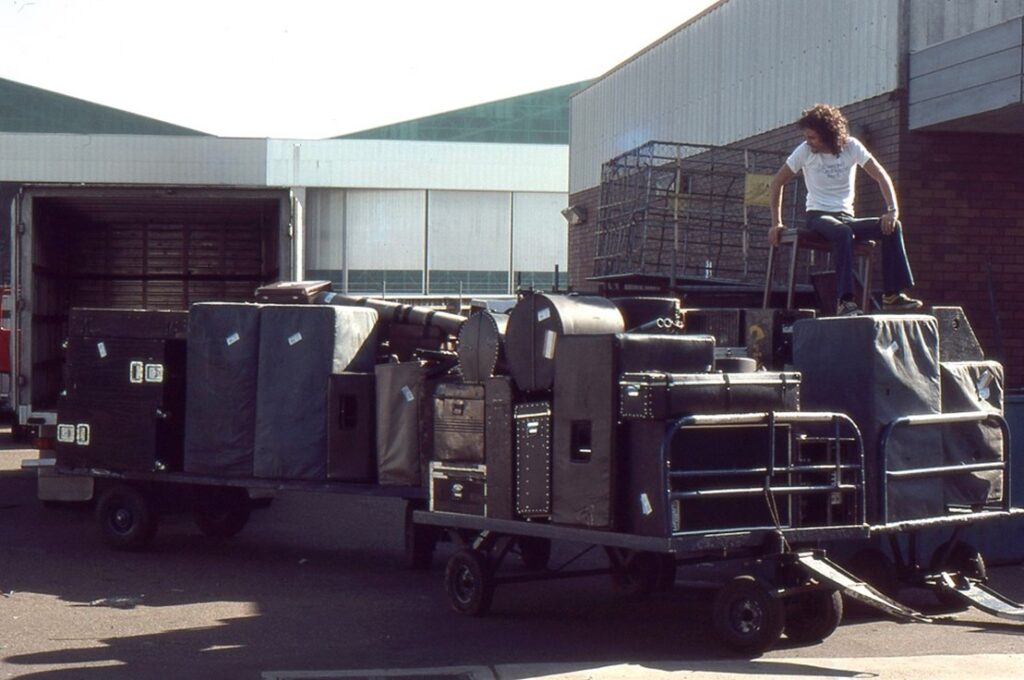
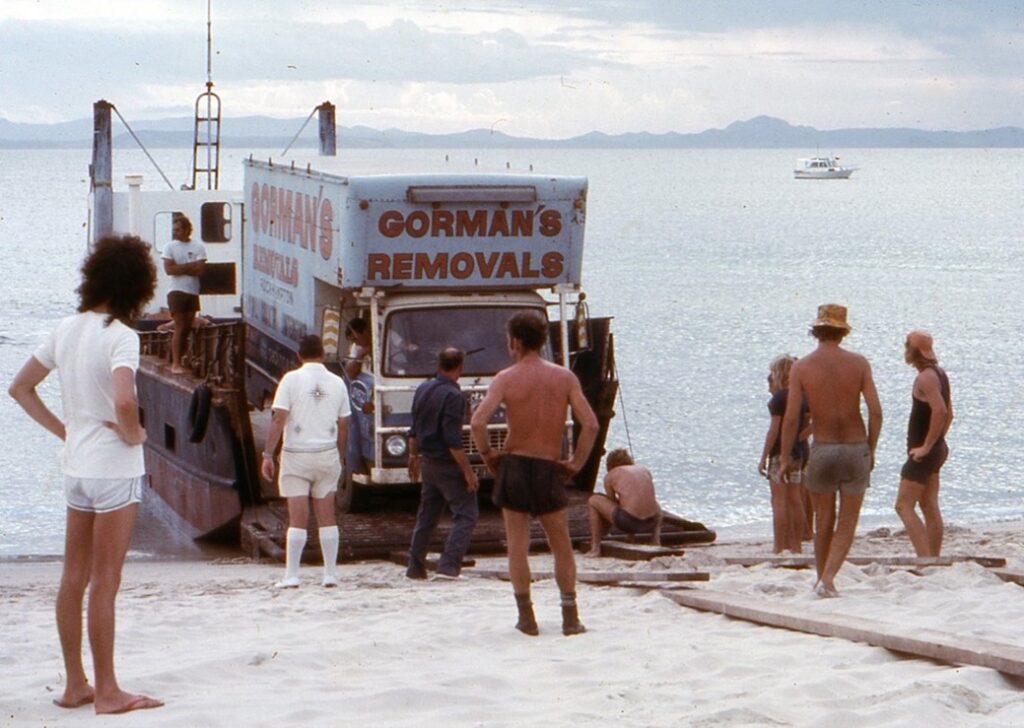
Ian “Piggy” Peel remembers Bill Putt waking them up one morning on Great Keppel telling Wickow and he the manager of the resort was complaining that all the pool furniture ended up in the pool.
As it was pointed out to Bill “but that’s why they call it “pool furniture”.
Bill went away laughing his head off. Fortunately, his head didn’t fall off.
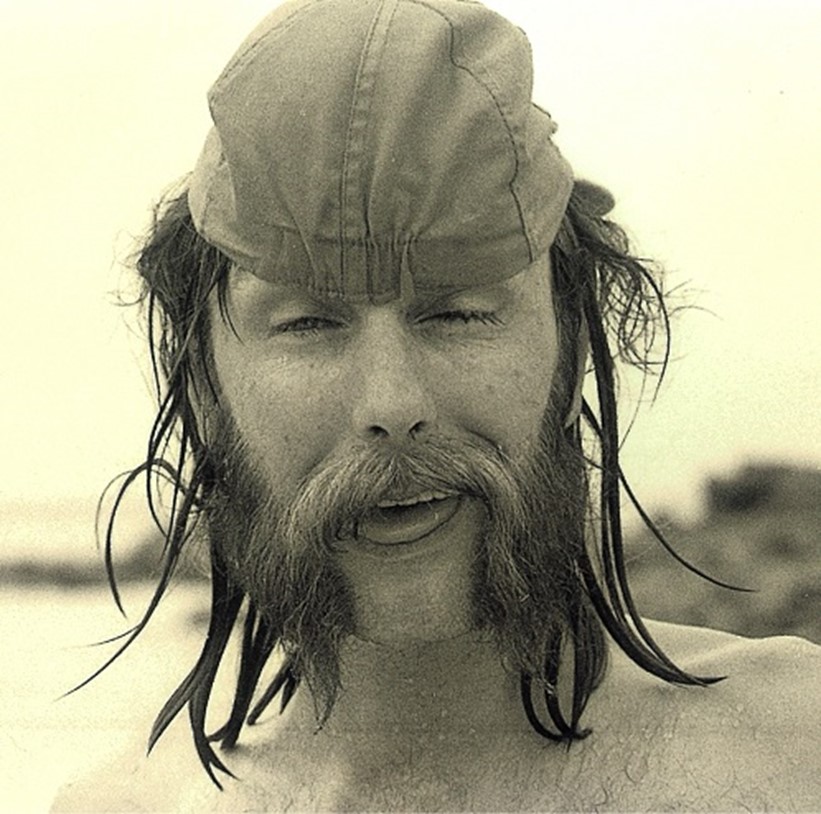
Rudd/Putt Partnership
Ariel continued the long-time music partnership between Rudd and Putt.
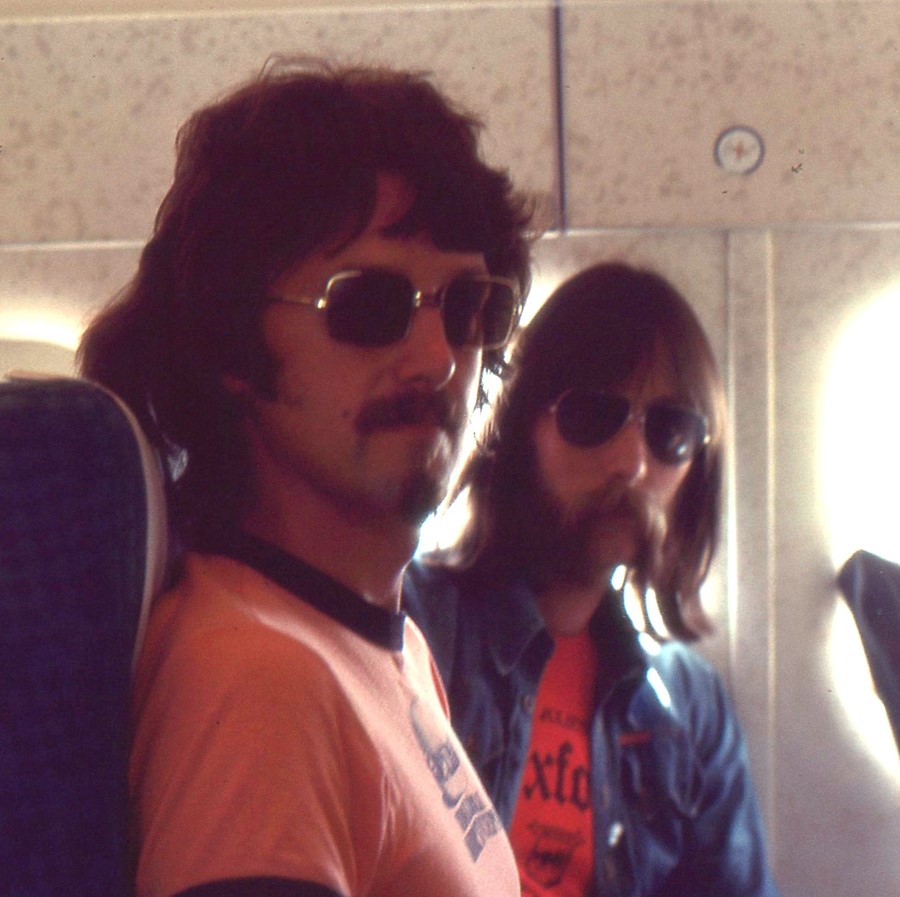
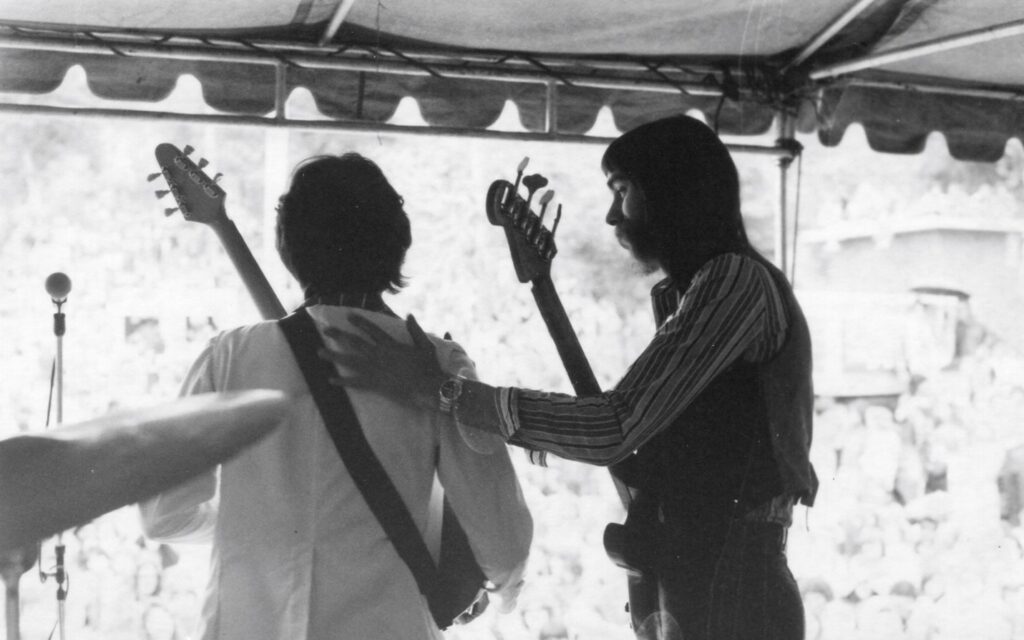
Rudd had started out in Christchurch, New Zealand, in R&B band The Chants, who moved to Melbourne in 1966 and celebrated by breaking up a few months later.
Rudd joined Ross Wilson and Ross Hannaford in the Party Machine. After they split when Wilson went to England, Mike put together Spectrum in 1969 (first show: August 15) with Bill.
Putt got thrown out of the Melbourne Conservatorium after a year. He explained at the time, “I’d put holes in my guitar and make it electric. I told them I didn’t want to become a classical musician, I just wanted to study some techniques, and that didn’t go down too well.”
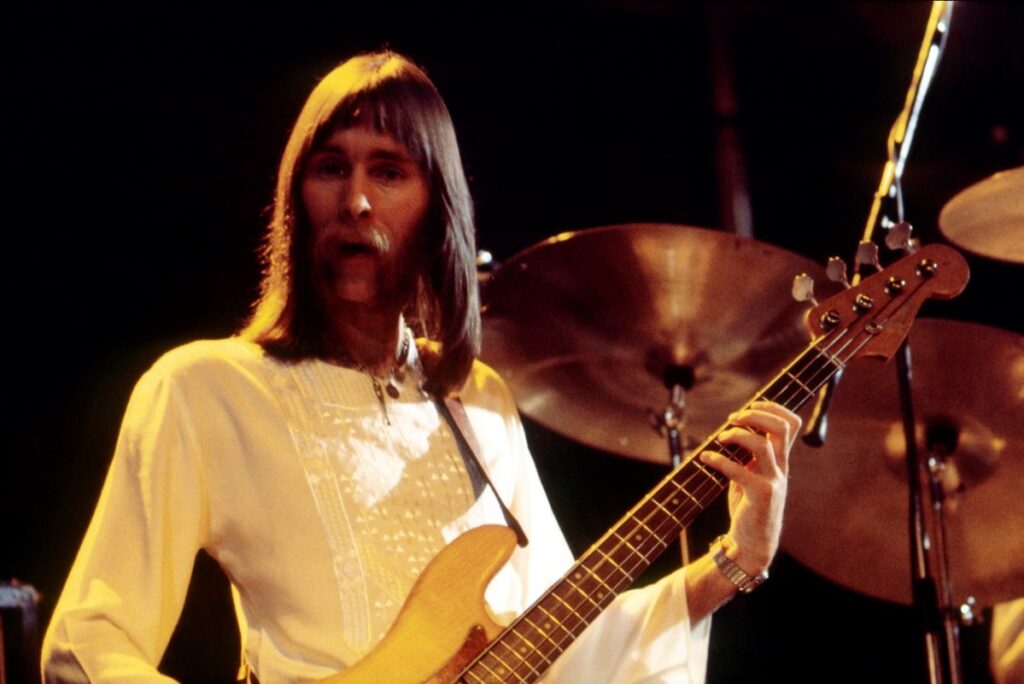
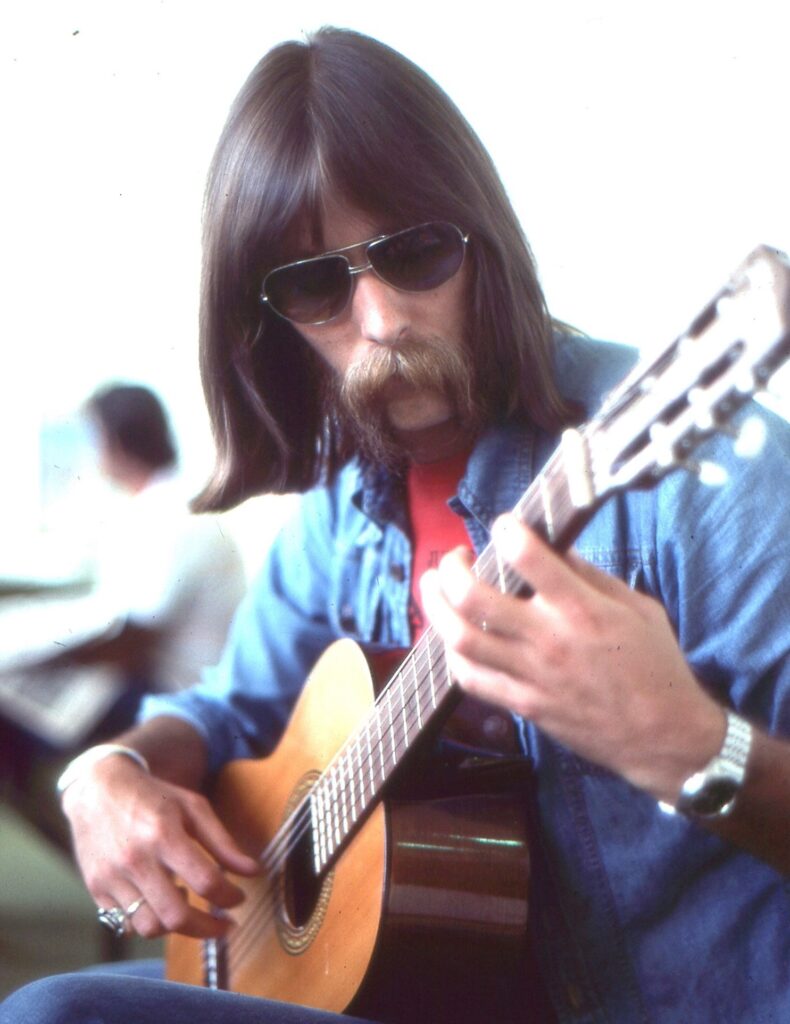
Putt also played steel guitar, wrote songs, was an audio engineer, and made an unreleased solo album. He remembers playing in “a whole bunch of crappy bands that did covers. Then I heard Mike’s songs and I went, That’s what I wanted to do, that’s real.”
Spectrum was a prog-rock outfit that would have been a huge success if they had moved to the UK, where bands like Genesis and Pink Floyd were also independently on a similar adventures and larger followings that allowed them to be as adventurous as they wanted to be.
They had a #1 hit with the haunting Rudd-penned “I’ll Be Gone” and released the first Australian double album in Milesago, and one as the more pub-rock friendly alter-ego Indelible Murtceps.
Ariel was a deliberately extroverted band that dressed up, and was one of the first Australian bands to tour with its own massive production and lighting rigs. That proved to be a constant drain on their finances.
The band endured many lineup changes but had stellar players. The first team featured one-time child prodigy Tim Gaze (guitar), John Mills (keyboards) and Nigel Macara (drums).
Drummer John Lee (later with The Dingoes) and guitarist Harvey James (later of Sherbet) were also in the ranks during Ariel’s four years together.
Live at Martinis 1976 shows what a tremendous amount of great songs they had, with Rudd, Mason and Slavich contributing songs. They include guitar workouts as “Redwing”, “I’ll Not Fade Away”, “Hot Sweet Love” and a primal “I’ll Be Gone,” to sing-alongs such as “Kings Cross Crusader”, “Rock And Roll Stars” and the high quality melodic “Hollywood” and “I Can Do Anything”.
Strange Fantastic Problems
Ariel’s debut album A Strange Fantastic Dream was released in Australia through EMI in December 1973 (where it peaked at #17) and ran into problems.
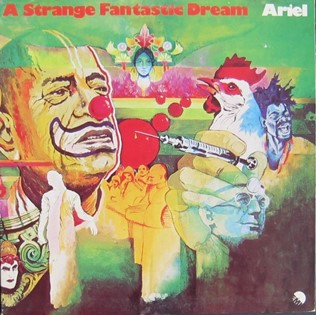
There were calls to ban the cover for a figure holding a hypodermic syringe. The radio authority banned three songs – “Confessions of a Psychopathic Cowpoke”, “Miracle Man” and “Chicken Shit”.
“Confessions Of A Psychopathic Cowpoke” was inspired by an incident in an Adelaide bar where some cops were drinking, and one pulled out a gun and started waving around.
“My reaction to that was that my balls completely disappeared,” Rudd recounts. “I felt as children we had been hoodwinked somewhat because the romantic side of all this is complete bullshit.
“So I wanted to write a song about this disgusting person and couched it in a seemingly harmless musical arrangement. That moment of realisation was art and was justification for writing it.”
Ariel’s first single, the joyous “Jamaican Farewell” also faced radio airplay issues. But Ariel’s live following generated enough sales to see it reach #34 and it was voted single of the year in 1973.
A Strange Fantastic Dream was released in the UK on the progressive label Harvest and found powerful supporters as legendary broadcaster John Peel.
As a follow up, Rudd began working on an ambitious sci-fi rock opera, The Jellabad Mutant.
It was about a mutant who landed in a spacecraft in the fictitious Victorian town of Jellabad, was adopted by a childless couple, and planned to infiltrate the human race by entering the mind of a down-and-out rock musician.
Unfortunately, EMI nixed the idea feeling there were too many concept albums in the market at that time. So Ariel, in England to record it at the famous Abbey Road Studios, had to switch quickly to Plan B.
The result, the acclaimed Rock & Roll Scars, revisited Spectrum/Murtceps material. One was an updated UK-sounding version of “I’ll Be Gone”.
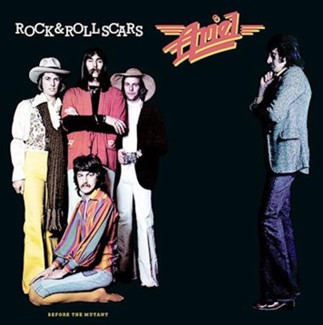
Rudd says that Mark Kennedy’s drum work on the Spectrum version “made it sound groovy, and it was recently included on the soundtrack for (Australian teleseries based in 1980s Brisbane about a precocious brother and his mute brother) Boy Swallows Universe.
New songs from the Rock & Roll Scars era included the title track “Red Hot Momma”, “I’ll Take You High” and “I Can’t Say What I Mean” which are on the Martinis tape.
These songs became live favourites but continued to run into resistance at radio. “I’ll Take You High” was a salacious comment to a schoolgirl.
Rudd emphasises it was never meant to be a “perv” song. “When I was at school I was actually terrified of school girls. I went to an all-boys school from quite a young age, and the idea of being in the presence of school girls terrified me.
“Anyway by the time that record was out, I was too old to be interested in school girls. Maybe I was inspired by Gary Glitter!”
By this stage, the band’s relationship with EMI had reached its lowest ebb, particularly when EMI added touches to the record without the band’s knowledge.
“We were surprised when we heard an omnipresent cowbell and a saxophone line which weren’t there when we left the studio.
“I thought they could have asked us first. It would have been nice. But of course if they had asked, I’d have said no.”
For their third album, Goodnight Fiona (September 1976), Ariel switched to CBS Records.
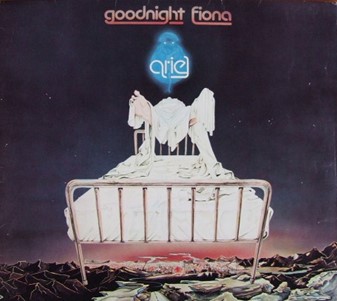
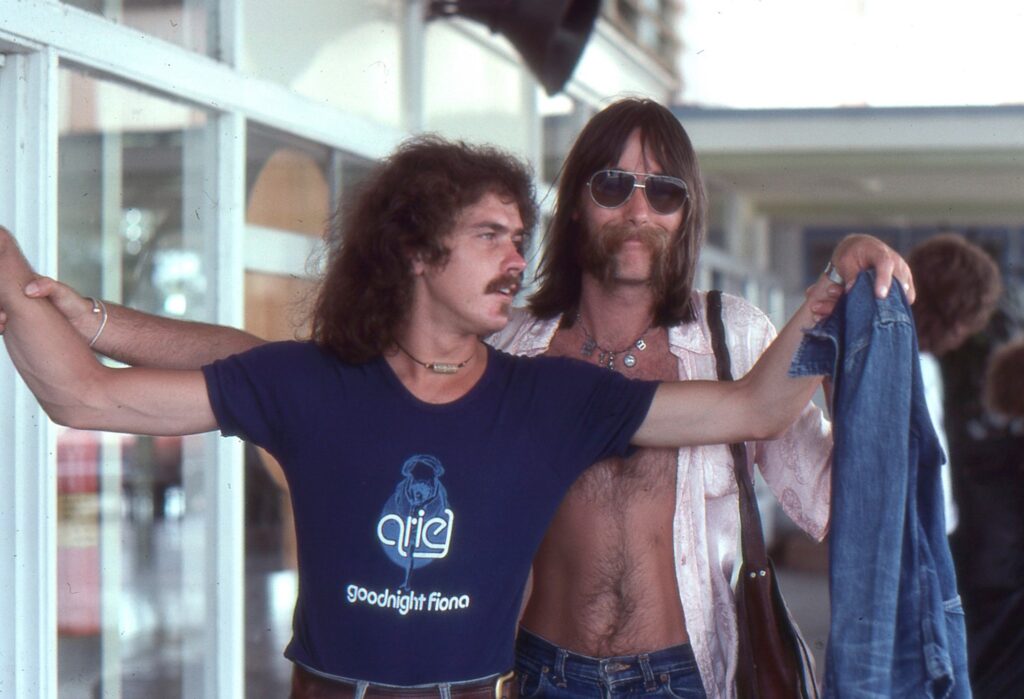
The title track was based around two post-apocalyptic moments of pop culture. One was folk singer Barry McGuire’s “Eve Of Destruction”, and the other a 1969 satirical movie The Bed Sitting Room based on comedian Spike Milligan’s play of that name and about the anniversary of a nuclear war that killed 40 million, and lasted two minutes and 28 seconds.
The album peaked at #19 in Melbourne. The last single with CBS was “Disco Dilemma” (April 1977), a wry comment on how the emergence of disco clubs at that time was taking jobs from live bands.
Ariel then moved to local indie label Image and recorded “It’s Only Love”, sung by its writer Glyn Mason.
“It’s such a beautiful song, and Billy Thorpe’s favourite song. Ariel’s radio poison was obvious by then, yet that was such a worthy song to have been played. Glyn still plays it to this day in his bands.”
It would prove to Ariel’s final official single. They called it quits, and played a gala farewell concert at the top-end Melbourne Dallas Brooks Hall on August 21 that year. The show yielded two live albums: Aloha Ariel and Ariel Alive! – More From Before.
Aftermath
After that Wickow joined Little River Band, doing 13 or 14 US tours with them (“It was interesting to see how huge they were, doing five or six stadiums a week”) and John Farnham circa Whispering Jack.
He worked with Ernie Rose at AAV/Metropolis studio, doing live broadcasts for superstars as Frank Sinatra, U2, Madonna and Paul McCartney.
He landed roles at sound companies Nova Sounds and McLean Sounds, going off the road when he started a family.
Ian Peel ended up with Renee Geyer doing lights. He worked for Concert Lighting Systems and Australian Concert Entertainment on international tours for the likes of Billy Field, Bob Marley, Bob Dylan, Boz Scaggs, Jose Feliciano, Melanie, Thin Lizzy, John Denver and many others.
Piggy was production Manager for Olivia Newton-John’s “Totally Hot” world tour in 1978.
He then went to England in 1979 to join the production company Highlife Productions (owned by Smokie) doing lighting for bands such as Madness, Tourists, Bob Marley, Smokie, Sky, Mike Oldfield, Barclay James Harvest, Chris DeBurgh, Motels, Tangerine Dream and others, also stopping being on the road when starting a family.
After Ariel, Rudd and Putt stayed together with Mike Rudd’s Instant Replay, the modern-sounding Heaters, and an adventurous before-its-time video project called WHY (Weird Harold and You) where the video projector was linked to Weird Harold The Drum Machine to create beats and visuals.
“The video technology cost us a fortune and we operated on a small budget and the concept only worked technically two or three times.”
Not surprisingly, WHY had a lot of interest in Europe, particularly from Klaus Schulze of electro-pioneers Tangerine Dream. They recorded an album in Germany which is yet to see light of day.
Rudd continues to play in projects that hark to psychedelia culture with a disdain to mainstream pop, some which includes Spectrum lineups. He says, “I’m still on the road and am loving it!”
Bill Putt died of a heart attack in 2013. Bill was the gentleman of the Aussie music industry.
Harvey James died two years earlier in 2011 after a six-month battle with lung cancer.
John Lee died in a Melbourne hospital in June 1998 from liver failure.
Iain McLennan passed away in 2023.
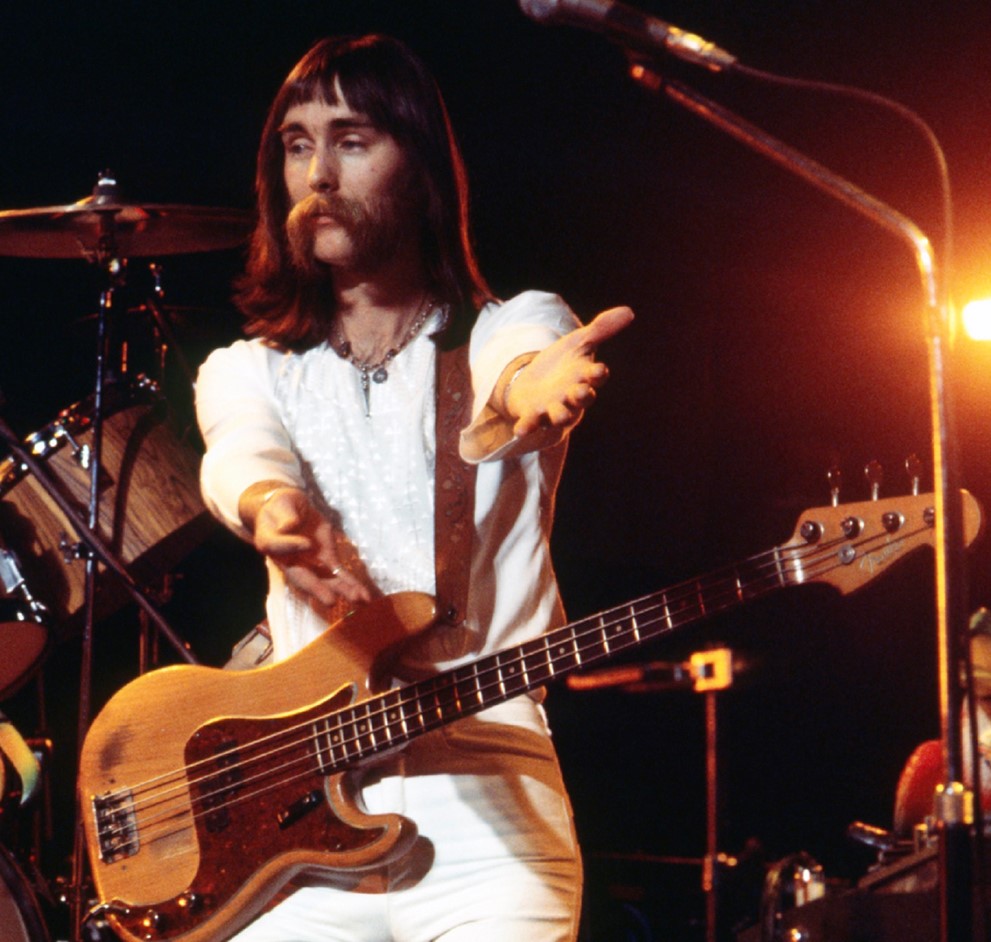
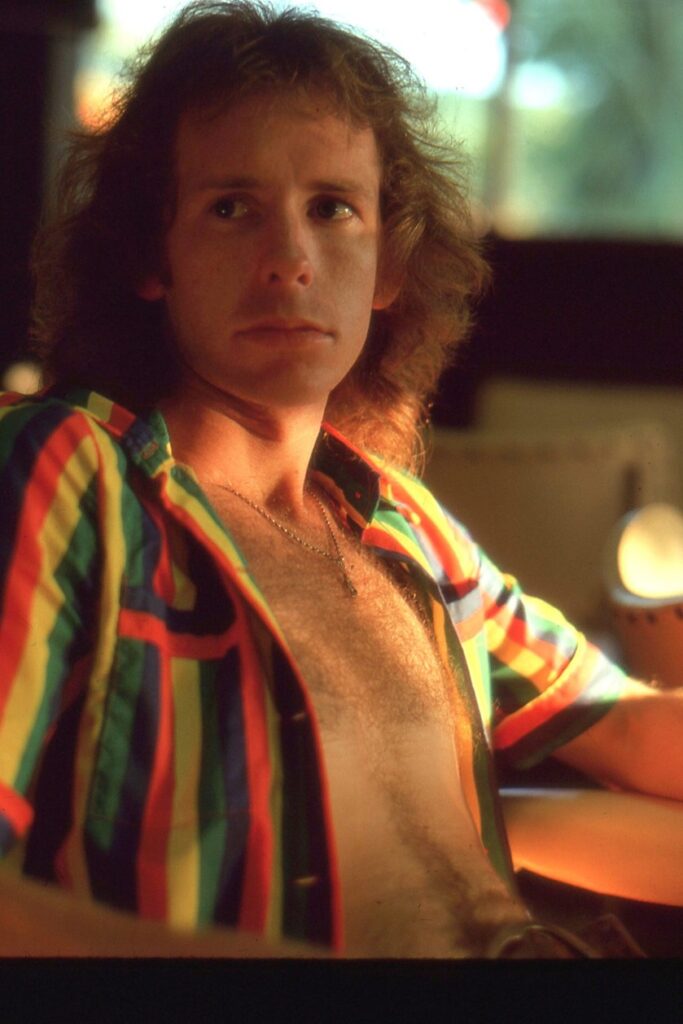
ARCA would like to thank the following sponsors of The Desk Tape Series:-
Sponsor Industry Roles
- Showtech Rigging
- CMI P.A and Production
- Clearlight Lighting
- DSE Trucks Transport
- Scully Outdoors Outdoor Production
- Gigpower Crewing and Staging
- Lock and Load Crewing
- Chameleon Touring Production and Lighting
- JPJ P.A and Lighting
- Novatech P.A and Lighting
- Phaseshift Lighting
- Show FX Australia Pyrotechnics
- Event Personnel Australia Crewing
- Norwest P.A and Lighting Production
- Nprint Artwork
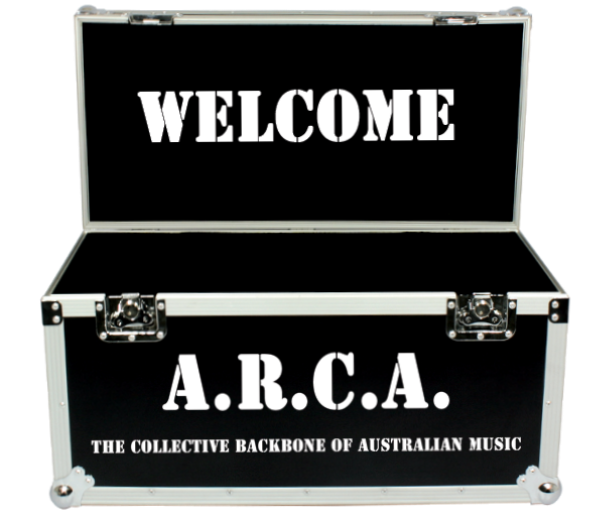
Ian Peel and Adrian Anderson
ARCA Co-founders and Directors.
Note from founders:-
“ARCA and The Desk Tape Series is a small way we can help our mates get some self-worth and recognition for their contribution to the Aussie music industry and help if they are in crisis. It is a great honour for us to be able to present these memories to all.”
All Hail Roadies and Crew
“Looking after OUR OWN with FEELING and a WHOLE LOTTA LOVE”
All enquiries contact :
Adrian Anderson 0409 789 440
Ian Peel 0415 667 221
Subscribe
Published monthly since 1991, our famous AV industry magazine is free for download or pay for print. Subscribers also receive CX News, our free weekly email with the latest industry news and jobs.


